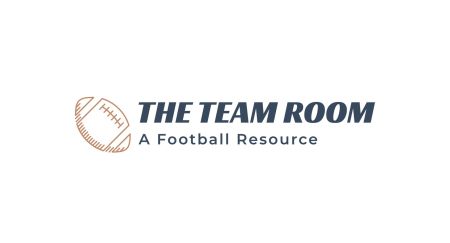Coaching Tips: Ways for Middle School Kids to Improve at Practice

Written by Rand Holdren via The Team Room
Twitter: @randoutwest and @TheTeamRoom1
We dive into the most common pitfalls we see at practices for middle school kids including: Standing in line, focus, finishing drills and parental involvement.
Middle school athletics is when sports take a competitive turn and the separation between casual and serious starts to take shape. This separation has been accelerated over the years but there are some fundamental aspects that have stayed the same. So, let’s drill down on some ways that help kids improve their practices.
PRACTICE HAS A START TIME AND AN END TIME
- While at practice, be at practice mentally, not just physically.
- When it is done, you should be tired and hungry… literally.
At this age all athletes are past learning the flow of the game and the emphasis is now on individual skills and tactical philosophies of said game. Physically, it is also a time for the kids to work hard, feel exhausted, and consistently break a sweat. And on the mental front, practice should be akin to being in a classroom which takes a certain level of focus to succeed. Too often kids casually roll in joking around and then keep that energy during practice. Playing catch at a BBQ is one thing, practice time is another.
PAYING ATTENTION IN LINE
- Learn by watching others.
- Don’t be a distraction to your teammates.
Middle school kids have moved past learning to stand in line and should start focusing on learning by watching others. It is extremely difficult for kids to limit distractions that go on around them but this should be a priority for them while in line. As we all know, visiting in line is an easy pitfall but you must fight against it. In sports, there is a lot to learn by watching people in front of you, both successes or failures. These are golden opportunities that can be missed if kids are not paying attention in line. Fight the urge to visit with your buddies…You can do that before or after practice.
UNDERSTANDING WHEN IT IS YOUR TURN, IT IS TIME TO TURN IT UP
- Focus when it is your turn.
- The goal is to have quality repetitions, not just go through the motions.
Every week I watch kids play around in line until it is their turn, and then continue the half-sorted focus during their rep. This ultimately means that the repetition was a wasted opportunity to improve. And if a series of these is strung together, it becomes a wasted practice session. Remember, each repetition is working to secure muscle memory and that can only happen when quality repetitions are registered. It doesn’t need to be Bruce Lee type focus, but it does need to have some level of intent for improvement. When it is your turn, focus and perform the task to the best of your ability. When you start stringing these quality reps together, huge improvements will start to be made.
FINISH DRILLS ALL THE WAY THROUGH
- Run all the way through the line.
- Mistakes will happen, finish full speed, correct it after.
There is nothing that is clearer to coaches than when a player lets up before he reaches the finish line in a drill. Even if a mistake happens during the drill/play finish strong anyway. You can clean it up afterward. There is no scientific data here, but the kids that run all the way through tend to be the silent leaders of the group. In athletics things rarely work out how they were drawn up, so you need to prepare for this. Finishing at full speed is an important habit to start developing as soon as possible.
PARENT INVOLVEMENT
- Be supportive and not a distraction.
- Limit the hovering around them during practice.
- Some ideas to help: Stand far away, take a walk, read a book or listen to a podcast.
A parent involved in their child’s development is a beautiful thing. But where should that stop? As a parent, I understand how difficult it can be to simply watch your kid quietly from the sideline, but it is what is best for my child.
Believe it or not, a parent yelling a note from the sideline is not helping. I say this half joking of course, but the lobbing of occasional notes from the sideline not only causes kids to lose focus but also, the comment yelled may not even be related to what the coach is working on. For example, if the child is working on a step with his right foot, and a parent yells trying to correct his left foot, it harpoons the learning process and serves no purpose. Our mind can only focus on one thing at a time.
It should also be noted sadly that the amount of abusive language I have heard is staggeringly high and it is not weird to hear grumbling from the kid or even tears of frustration. Remember they are out on the field for a few hours a week, so allow the coach to coach them during that period of time. If you have a note for them, share it after practice in a constructive way; don’t be overbearing, it wears kids out.
And finally, allow your kids to fail on their own; it will ultimately help them succeed.
THE TEAM ROOM was created to help athletes and parents expand their knowledge in the game of football. We are a football resource that has original content from a variety of writers with high experience in the game. Our contributors include coaches and players from all levels ranging from youth to the NFL.
Rand Holdren (Editor-in-Chief) – 30 years of football experience as a player and a coach. Owner of Underground Football, quarterback coach and current head coach at Maranatha High School.
Photo credit: The Team Room

